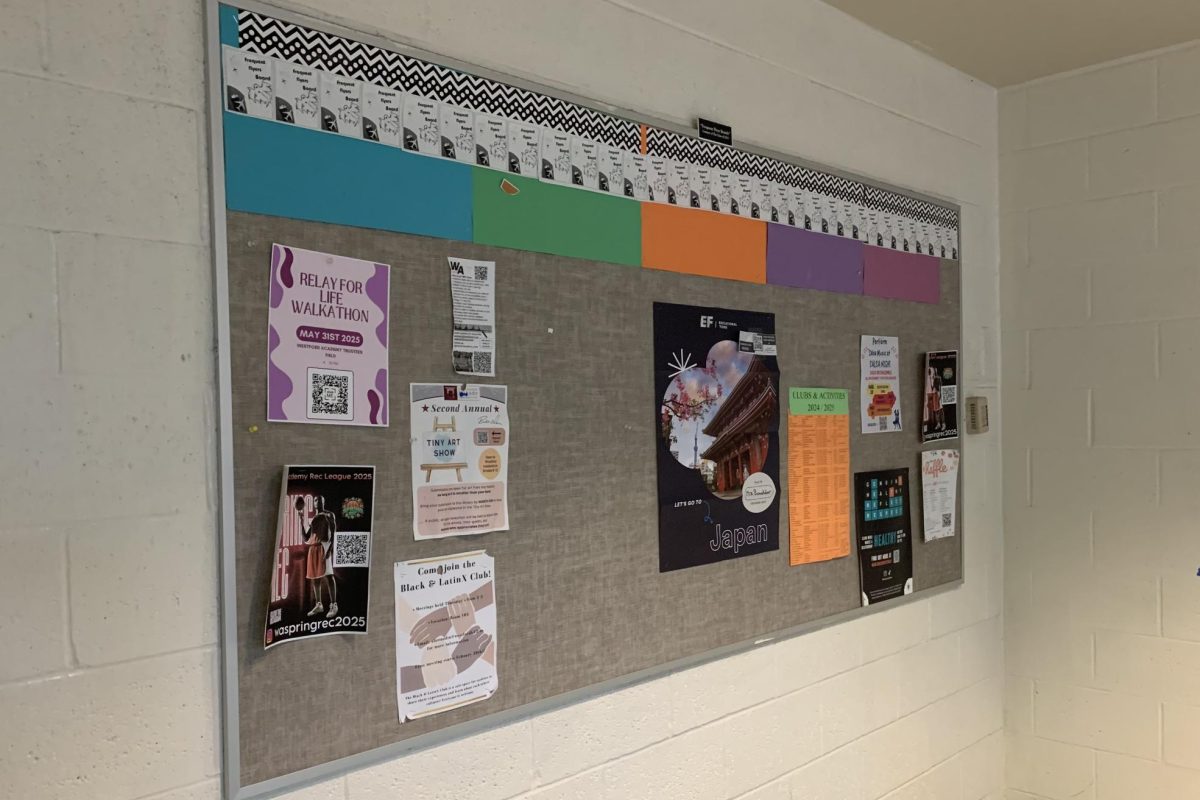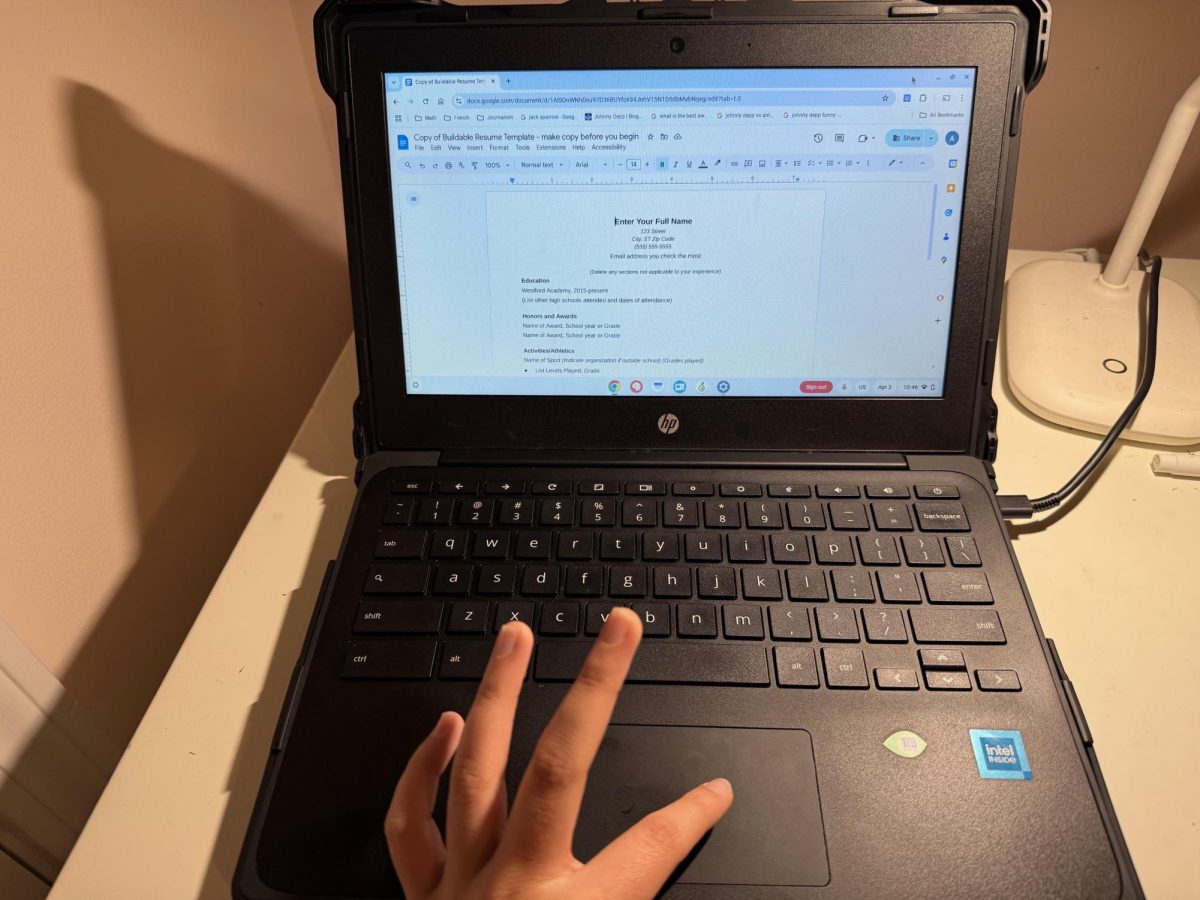With Westford currently facing a $6-8 million deficit, the town will be experiencing many cuts to school and town services. Among those affected will be the town’s elementary and middle schools where reductions to service and staff are spread out across all grade levels. The largest impact will be faced by the math and reading interventionists, reading teachers, and literacy specialists.
Superintendent Christopher Chew has presented the scenarios where a sufficient override is successful and one where there is no additional revenue and the town is forced to balance a budget under the Proposition 2 1/2 constraints. Depending on the scenario, there is a differing severity of the potential cuts.
Passed Override Scenario
Under the two proposed budget scenarios, there will be a need to reduce full time equivalents (FTEs), however there will be a difference in the severity. In a passed override scenario where additional revenue is received, there will be a 2.0 FTE decrease at the middle school level and a 4.0 FTE decrease at the elementary level. This decrease is due to the changing enrollment numbers.
According to School Committee Chair Valery Young, elementary schools have a number of sections or classrooms based on enrollment. If enrollment numbers in the grades decrease, some sections, including teachers and classes, are not needed, so the staff adjustment will be made. This is considered a responsible adjustments based on the changing enrollment, rather than a reduction or cut.
During the Feb. 13 Select Board meeting, there were discussions of the trade offs of asking voters to support a $6 million, $7.6 million and $8.5 million override amount. If a lower override is passed, there may be additional budget impacts.
No Override Scenario
If an override does not pass, there will be a reduction of 8.0 FTE elementary teaching positions. This means larger class sizes at Miller, Robinson, Crisafulli, Abbot, and Day, increasing class sizes up to 24-25 students. There will also be a 2.0 FTE reduction in middle school teaching positions which will also lead to larger class sizes.
“When we’re looking at the impacts that any of these changes might have on teachers, that could also very well impact the activities that students at the elementary levels have access to,” Superintendent Dr. Christopher Chew said.
Along with FTE reductions, elementary and middle schools will also be a reduction of literacy specialists from 6.0 to 3.0 FTEs, 2.0 FTE reduction to reading teachers, elimination of 15 math and 11 reading interventionists at both elementary and middle school levels, and a change in the support provided by the curriculum coordinators for elementary schools.
The largest impact that will be faced by both the elementary and middle school levels will be the elimination of all 26 interventionists. Interventionists provide individual, small group, and in class support of students who are identified by teachers as struggling with specific skills necessary for academic success. Students may be pulled out of classes to work with their interventionists, providing flexibility as it is not a scheduled class.
According to 3-5 STEM Coordinator Jennifer Cataldo, there has recently been diagnostic testing done which has shown that several students getting intervention will no longer need it. She believes that because of intervention, it has been very successful to get students back up to grade level.
“It’s such a bang for your buck in Westford [right now] because these are certified teachers who have come back to do this job at an hourly rate […] I think it’s what makes Westford have such excellence later on, because these kids all catch up and then do beautifully when they go to middle and high school,” Cataldo said.
With the complete elimination of interventionists, students who are receiving intervention may be referred to academic coaching classes, which would increase those class sizes and the academic coach’s ability to provide individualized support. The current in class support of students that the math interventionists and reading interventionists provide when students are struggling with specific skills would be eliminated.
Replacing the model will be an academic coach at each K-5 school meaning six in total. This will help relieve the burden of providing intervention, but might not be able to support as many students.
“Without interventions, that’s over 200 children […] who are regular education kids struggling in math right now, who would not be getting those supports.” Cataldo said. “And if you change that to one [academic] coach, instead of three interventionists, there’s one person now, so it’s going to be reduced by a third at least.”
The caseload of students being supported would be drastically decreased, so some struggling students would have to rely on their classroom teacher to help support them. According to fourth grade teacher Megan Eckroth, much of the responsibility would end up falling on the general education teacher.
“As a teacher, I can tell you, for that to fall on teachers should the interventionists be removed would be devastating and is frankly completely unrealistic coupled with the fact that we may have larger classrooms and more students to service,” Eckroth said.
Currently, there are two reading teachers at the middle school level, one at each school. They instruct small group classes that teach reading skills including literal and inferential comprehension, reading strategies, story elements, and vocabulary. This program is for students whose previous teachers have recognized that they could benefit from extra support.
If the override does not pass, there will also be a reduction of 2.0 FTE reading teachers, meaning an elimination of this general education elective at both the middle schools. Chew said at the Jan. 2 school committee meeting that students currently enrolled in this program would be placed in a World Language class without prior language experience. Though this is not a new concept as many new students must do this when they move to Westford in 7th or 8th grade. This would also increase the class sizes at all three grade levels for all four world languages at each school. Students could also be enrolled in an academic coaching class if they require the support.
Additionally, there would be a reduction of literacy specialists from 6.0 to 3.0 FTEs. Though there will continue to be support and expertise from these specialists, student service sizes will increase from 1-3 students to 3-5 per specialist, which will impact how much support can be provided.
Another elementary impact would be a change in the supports provided by the curriculum coordinators. Currently there are K-2 STEM, K-2 Humanities, 3-5 STEM, and 3-5 Humanities coordinators. However, if the override does not pass, the positions would be cut to one K-5 STEM coordinator and one K-5 Humanities coordinator. This reduces the support that teachers may receive when learning a new curriculum, or having new lessons modeled for them.
With the potential cuts to all schools in the district, the committee hopes to balance the needs of students of all ages in the WPS system, ensuring that the elementary and middle school students are properly represented.
“We have to remember that our first graders, and our kindergarteners, and our second graders aren’t able to necessarily come out here and speak.” Chew said. “So what has happened historically is that we have been making decisions that have impacted the elementary schools [and] has not had an impact on Westford Academy.”








